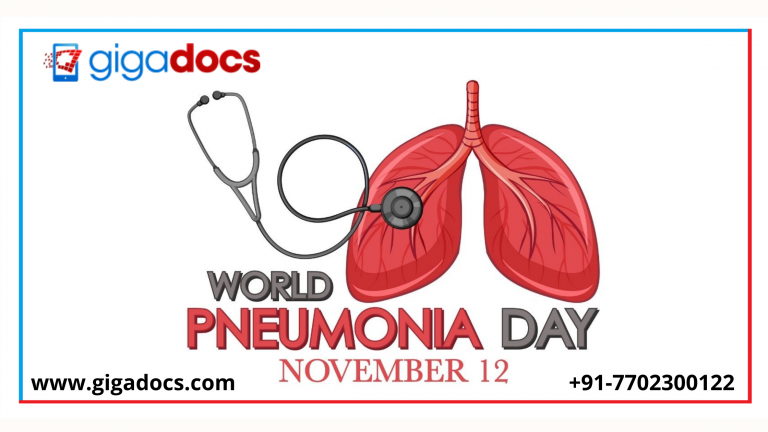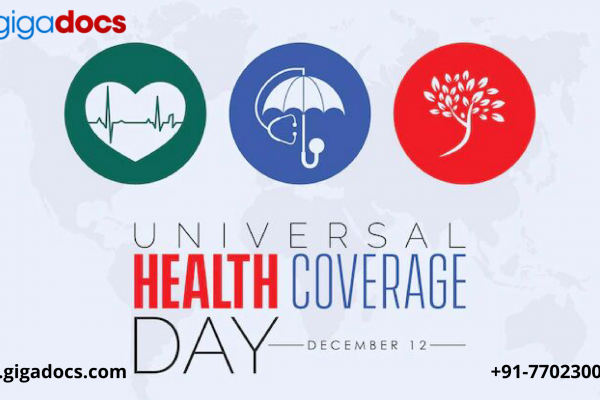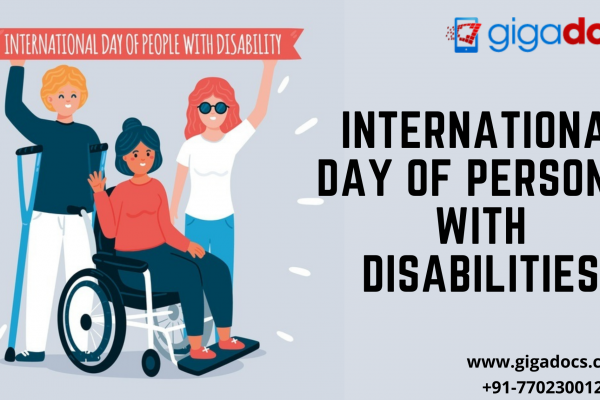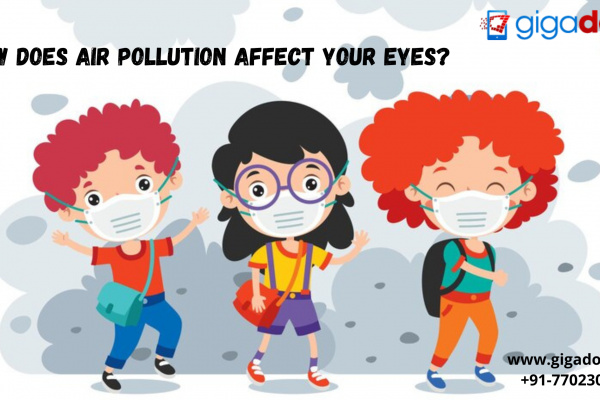Pneumonia is a lung infection caused by bacteria, viruses, or fungi. It is a potentially fatal infection in which the air sacs become clogged with pus and other fluids. Anyone can contract pneumonia. However, the following groups are the most vulnerable:
- Adults aged 65 and up
- Children under the age of two
- People suffering from comorbidities
- Smokers
Types of Pneumonia
- Bacterial pneumonia: A variety of microorganisms causes bacterial pneumonia. Streptococcus pneumonia is the most common. This type of pneumonia usually happens when the body weakens due to disease, nutritional deficiencies, advanced age, prompting the bacteria to enter the lungs. Bacterial pneumonia can strike anyone at any age. If you consume alcohol, have recently had surgery, have a respiratory illness, are a smoker, or have weakened immunity, you are more likely to get it.
- Viral pneumonia: Viruses like the flu (influenza) cause this pneumonia, accounting for roughly one-third of pneumonia cases. Word of caution- If you have viral pneumonia, you may be more prone to bacterial pneumonia.
- Mycoplasma pneumonia: Bacterium Mycoplasma pneumonia is behind this type of pneumonia that can affect people of all ages.
- Hospital-acquired pneumonia: Nosocomial pneumonia, also known as hospital-acquired pneumonia (HAP), occurs within 48 hours after hospital admission and the patient was not incubating at the time of hospital admission. A prevalent kind of HAP in intensive care units is ventilator-associated pneumonia (VAP) (ICUs).
Pneumonia Symptoms
- Lips and fingernails have a bluish tint.
- Mental confusion or delirium, especially in the elderly
- Cough with green, yellow, or red mucus
- Excessive sweating
- Appetite loss
- Extreme fatigue and a lack of energy
- Fast breathing
- A swift pulse
- Shivering chills
- Sharp or stabbing chest discomfort exacerbated by deep breathing or coughing
- Headache
- Shortness of breath
- Muscle discomfort
Air Pollution and Pneumonia
Air pollution is the primary cause of pneumonia death across all age groups. Polluted air was responsible for about one-third of all pneumonia fatalities in 2019, killing approximately 749,200 people. Household air pollution was responsible for 423,000 deaths, whereas outdoor air pollution was responsible for 326,000.
Children are particularly vulnerable to household air pollution in homes where polluting fuels are used for cooking, heating, and lighting on a daily basis. Outdoor air pollution, particularly chemicals released by businesses and car exhaust smoke, has a disproportionately negative impact on respiratory health in older persons.
Covid Pneumonia
Most COVID-19 patients experience mild to severe symptoms such as coughing, fever, and shortness of breath. However, some infected people develop severe pneumonia in both lungs, which can be life fatal.
- About 15% of COVID-19 cases are severe. As a result, patients may require oxygen therapy and possible hospitalization.
- Approximately 5% of persons get severe infections and require a ventilator.
- Pneumonia patients may also experience acute respiratory distress syndrome (ARDS). It’s a condition that strikes fast and causes respiratory complications.
Covid Pneumonia: Risk groups
- People aged 65 and above and those aged 85 and up are most at danger.
- Inhabitants at nursing homes or those who have other health issues such as the ones listed below are also at an increased risk of Covid Pneumonia-
- Asthma ranging from mild to severe
- The discomfort of the Lungs
- High Blood pressure
- Cardiovascular disease
- Diabetes-related liver disease
- Failure of the kidneys
- Obesity, or a BMI of over 40
COVID-19 Pneumonia Symptoms
- Symptoms when COVID-19 infection starts to cause pneumonia:
- Rapid heartbeat
- Shortness of breath or breathlessness
- Rapid breathing
- Dizziness
- Heavy sweating
COVID-19 Pneumonia Diagnosis
- Blood tests that probe low lymphocyte counts and elevated C-reactive protein levels (CRP).
- Low blood oxygen levels.
- A chest CT scan to investigate lung patches in both lungs.
| World Pneumonia Day 2021 Pneumonia is the biggest infectious killer of children and adolescents, killing over 2 million in 2019, with over 650,000 young kids. COVID-19-related deaths have resulted in two million deaths in 2020 alone, bringing the overall death toll to more than 4 million. No other illness has taken so many lives as pneumonia. Every year on November 12th, World Pneumonia Day attempts to raise awareness about this terrible condition and push for global action to safeguard against it. This year’s theme is “Stop Pneumonia / Every Breath Counts.” |
Pneumonia Diagnosis
The severity of the condition and your recent health history (such as surgery, a cold, or travel exposures) are accounted for an accurate diagnosis. Your doctor may diagnose pneumonia based on a comprehensive history and physical exam based on these indicators. To confirm the diagnosis, the following tests may be conducted:
- Chest X-ray: This test photographs internal tissues, bones, and organs like the lungs.
- Blood Tests: This test may be done to detect whether the infection is present and if the infection has moved to the bloodstream. The amount of oxygen in your bloodstream is measured via an arterial blood gas test.
- Sputum Culture: This examination is performed on particles coughed up from the lungs and into the mouth to assess whether or not the lungs are infected.
- Oximeter: A tiny piece of equipment that measures the amount of oxygen in the blood. Oximeter sensors are placed or fastened onto a finger to test oxygen levels.
- Chest CT Scan: This imaging process uses X-rays to generate clear, detailed horizontal or axial images (commonly referred to as slices). A CT scan provides detailed images of various body regions, such as the bones, muscles, fat, and organs. CT scans are more detailed than ordinary X-rays.
- Bronchoscopy: A flexible tube (bronchoscope) is used to examine the bronchi (the central airways of the lungs). It helps in the evaluation and diagnosis of lung disorders, the assessment of obstructions, and the collection of tissue and/or fluid samples for testing.
Complications of Pneumonia
Although most people with pneumonia react well to therapy, pneumonia can be extremely dangerous and even fatal. Complications of pneumonia may include:
- Acute respiratory distress syndrome (ARDS)- A severe type of respiratory failure that may lead to death.
- Lung abscesses are pus-filled pockets that develop inside or around the lung and require surgically draining.
- Respiratory failure necessitates the use of a breathing machine, sometimes known as a ventilator.
- Sepsis occurs when an infection enters the bloodstream. It is capable of causing organ failure.
Pneumonia Prevention
Pneumonia may necessitate hospitalization for treatment with oxygen, a ventilator to assist the patient in breathing, and intravenous (IV) fluids to minimize dehydration effects.
While COVID vaccines are now available, they do not protect against pneumonia-like the pneumococcal conjugate vaccination (PCV). This pneumonia vaccine protects against infection caused by the bacterium Streptococcus pneumonia rather than the coronavirus. Nonetheless, it can benefit your overall health, especially if you’re older or have a weakened immune system. Consult a Gigadocs expert specialist about whether you should get a preventive pneumonia vaccine.
Pneumonia Treatment with Gigadocs
Although Pneumonia is usually treated at home, severe cases may require hospitalization. Bacterial Pneumonia is treated with antibiotics.
Other treatments may include a well-balanced diet, increased fluid intake, rest, oxygen therapy, pain medication, temperature control, and even cough-relief medication if the cough is severe.
Colds and coughs are common seasonal changes, but to avoid the serious repercussions of Pneumonia, consult professional doctors on the Gigadocs App. Get the Gigadocs App from-
- IOS App – apple.co/2W2iG4V
- Android App – bit.ly/33AQoRC
To know more and schedule a Virtual Consultation demo, e-mail at info@gigadocs.com




